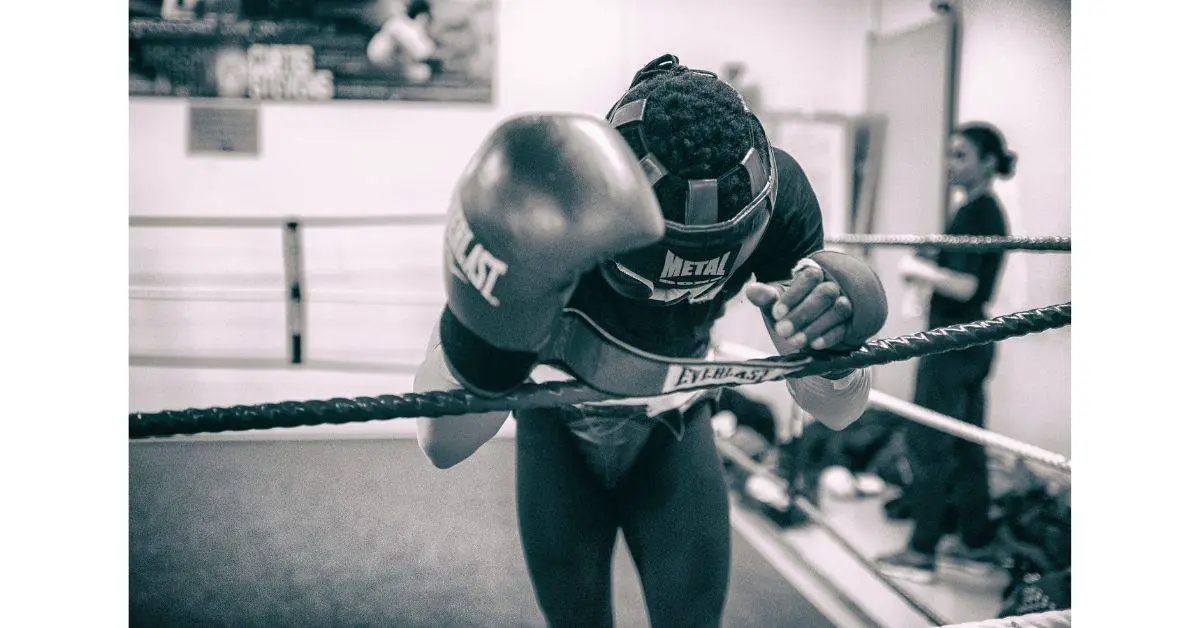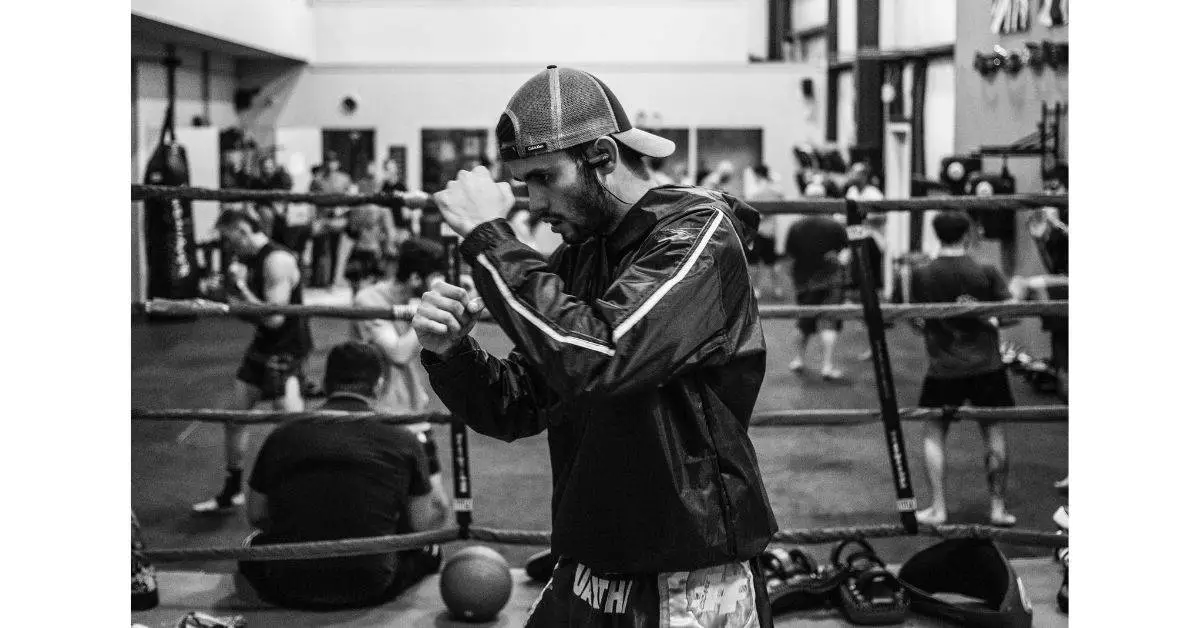Some people find running to be a calming, relaxing activity, while for others, it’s a torturous ordeal. Run or not, boxers can benefit greatly from the cardiovascular and endurance training that running provides.
Professional and amateur boxers should run because running is an aerobic training and conditioning exercise that helps enhance strength, speed, physical shape, and aerobic fitness for boxing. The best way for a contender to become unbeatable in and out of the ring is to devote ample time and effort to conditioning.
While boxers would run large distances in the past for their “roadwork,” today’s fighters use a different method. Distance is still a part of modern boxing roadwork, but your kilometers will be interspersed with interval training in sprints, backpedals, left—and right-foot shuffles, and ring-based maneuvers like rolling and slipping.
Roadwork for boxers ultimately aims to improve aerobic conditioning for all boxing areas, including mental attention and cardiovascular strength.
Include a day of plyometrics, weight training, running into the wind or up a hill, a mile sprint, boxing footwork exercises, etc. Balance, quickness, explosiveness, stamina, strength, and more all play a role in successful boxing footwork.
Many boxers fall into the bad habit of doing nothing but long, leisurely jogs daily, and then they wonder why they’ve lost their explosiveness. The ideal distance for a Boxer’s jog is three to five miles. Jogging for longer than that serves no purpose and is merely wasteful.
Before we dive in, if you want to boost your boxing skills by buying the most suitable clothing for the art of punching, follow the link to learn more.
Should boxers run every day?
Boxing is an anaerobic sport. According to estimates, the sport is roughly 70–80% anaerobic and 20–30% aerobic. Anaerobic refers to the absence of oxygen during activity. Boxing and other anaerobic exercises put the muscles under high-intensity, transient stress.
Boxers should not run every day. It is best to run twice or thrice weekly, so you don’t overtrain yourself. These routines are strenuous. Your physical self will require time to recuperate. It’s best not to use days you plan to spar for strenuous interval training. Doing interval training on non-boxing days is the best.

Ideally, you’d have a clean slate and a new set of legs before entering the ring.
The following is an example schedule you can apply on days without intervals:
- Run two miles (moderate to fast pace)
- 100-meter sprint
- 1-round shadowboxing (3-minute round)
- 200 meters backward, running
- Running while punching with your hands raised 400 yards (0.37 kilometers)
- Run 100 meters in reverse.
- 400-meter jog
- Take a walk to relax.
Here’s why boxers should run
Boxers embrace running to adequately prepare them for their big moment in this high-profile sport, since fighters must have outstanding physical fitness and stamina to handle and sustain the tremendous demands of confronting their opponent in a pugilistic engagement.
Boxers should run because running is the quickest way to increase cardiovascular fitness and to survive and manage 12 rounds of boxing successfully. It helps fighters be in good shape. Running has the favorable effect of speeding up heartbeats, which helps the heart and circulatory system by enhancing the body’s health.

An ongoing regimen of running for 2-3 hours per day, five days per week, will cause adaptation and raise one’s aerobic capacity. If you increase your aerobic capacity, you will have some energy left over at the end of the day or after 12 rounds of boxing. If you are a sedentary worker, you won’t feel exhausted.
Through aerobic exercise, the cardio-pulmonary system strengthens by forcing the body to adjust to situations where the body uses oxygen as an energy source. Running at a leisurely speed with a target heart rate of no more than 150 beats per minute can serve as this training.
You can only achieve the training impact of this exercise on the cardio-pulmonary system if it is performed every day for a minimum of sixty (60) minutes. The cardio-pulmonary system will improve more quickly the longer you perform this activity.
If you want to learn more about sparring and whether it hurts, follow the link to an article of mine on the topic.
How often should boxers run?
Roadwork has been the most crucial part of every boxer’s training regiment since 1681, when boxing became formal. Whether sprinting or long-distance, running can improve many aspects of a boxer’s abilities and capabilities. Running is one of the most effective ways to build endurance and stamina, and it’s also fun when training.
Heavyweight boxers will run anywhere from two to six kilometers per day, three to four times per week. Although every Boxer has their own method for getting in their miles, you should aim to run between three and four times a week for a total of five miles. Boxers can train safely at this pace without exposure to overtraining.

Roadwork regimens for newbies should first consist of shorter distances completed at a more leisurely pace. Boxers of all skill levels can benefit tremendously from interval training, consisting of alternating bouts of one-minute sprints every five or ten minutes and brief hills.
Because boxing is one of the most dangerous sports, you must learn to protect yourself at all costs, even if it means wearing protective gear. Follow the link to see which headgear is best for your purpose.
Do most boxers run
Combining boxing with running has been a winning strategy for world-class fighters since the sport’s infancy. If you look back in time or stay in the present, you’ll find that champion-level fighters always incorporate a rigorous jogging regimen into their regular training.
Most boxers run. Jack Dempsey, Muhammad Ali, Floyd Mayweather, Mike Tyson, and Canelo Alvarez are all hall-of-fame boxers. You’ll notice one thing they have in common: to be successful in the ring; they had to put in the work on the road and maintain a regular jogging routine. Running boosts endurance and leg strength.

Running is an integral part of boxing training because it lays the cardiovascular groundwork necessary to reach peak fitness for the sport. So most boxers run because it also allows mental preparation for upcoming bouts. It also improves lower body strength and stamina, serving fighters well in the ring.
Boxers can maintain a steady pace for at least five miles every day, and they always follow their run with a training session.
If you want to buy boxing shoes and thus improve your punching skills instantly, here’s an article I wrote about the best boxing shoes for your money.
Examples of professional boxers who run every day
Various professional boxers have a stable running routine they follow, which contributes to their success in the gym. One of which is Floyd Mayweather Jr., with a perfect record as a professional and five world titles to his name, is widely acknowledged as one of the best boxers of all time. He has had an impressive career with fifteen world titles and the lineal championship in four weight classes.
Here are some examples of professional boxers who run:
- Floyd Mayweather Jr.
- Mike Tyson
- Juan Manuel Marquez
- Muhammad Ali
- Joe Louis
- Sugar Ray Leonard
- George Foreman
- Tyson Fury
- Roy Jones Jr.
Mayweather runs from 5 to 8 miles (ca. 13 km) daily to improve his cardiac fitness. Unlike other boxers, he likes to get his workouts in at 1am. Mayweather stated during an interview that he was more productive during the late hours of the night when he was in training.
Throughout his training diary, boxer Juan Manuel Marquez details his mental and physical preparation. He mentions that he runs three miles daily, mostly Mondays and Thursdays. At the same time, doing sprints Tuesdays and Fridays.
Final words
Congratulations, if you’re just getting started in the sport of boxing. The most important thing is to get up and move; how many miles you run is up to your fitness level. If you want to compete at any level in the ring, you need to include running as part of your game plan, even if it’s only to get the most out of your training and sparring sessions.
Whatever your fitness level, running is a great method to increase your health and cardiovascular fitness. Remember to drink lots of water to keep hydrated; I hope you learned something useful for your personal and professional boxing style.
If you enjoyed reading this article, you’ll also enjoy reading about the best boxers in the world. Knowing who they are will allow you to learn from the very best; so do give it a read!
